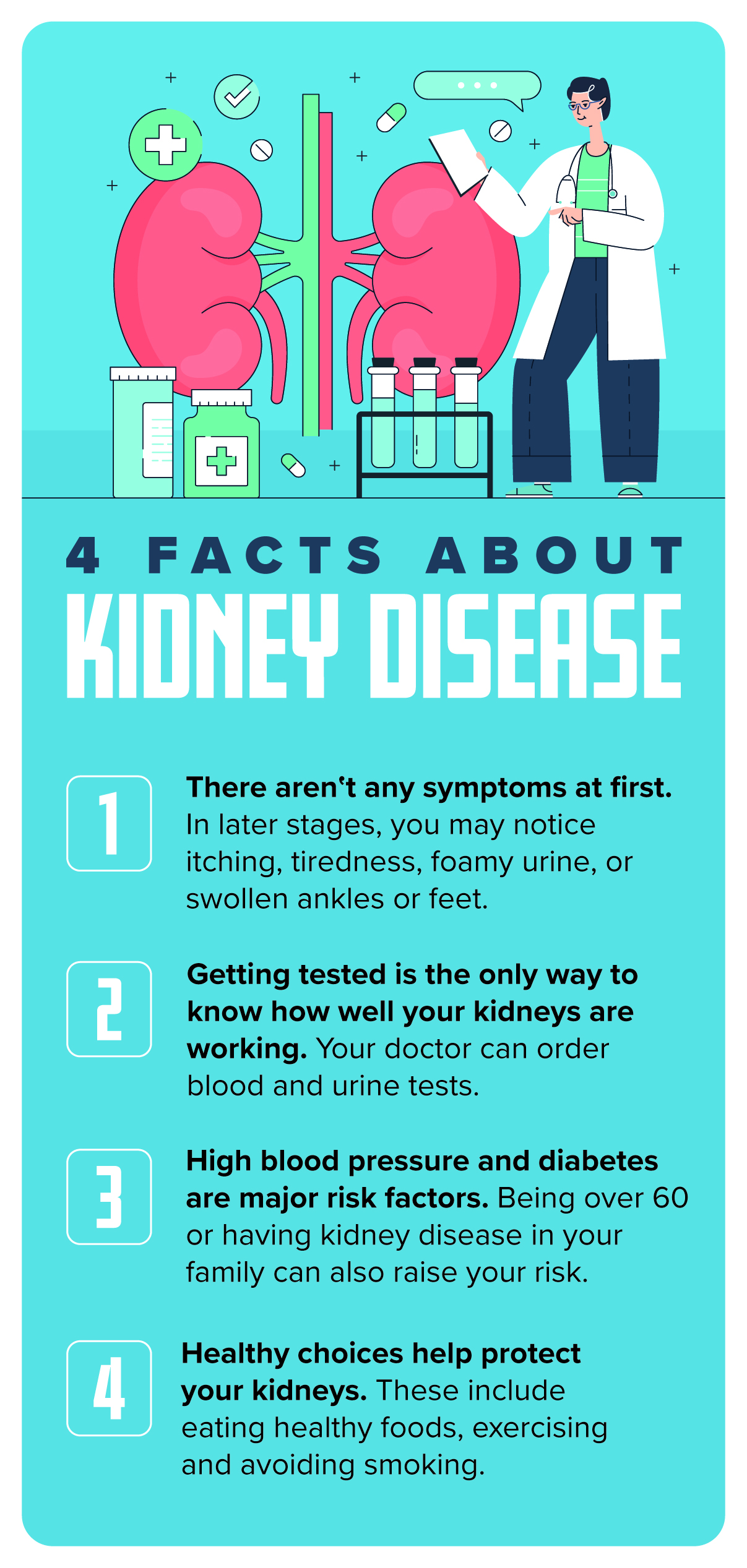What do your kidneys do for you? For starters, they filter waste and extra fluid from your blood and remove these from your body as urine. And they balance your blood pressure and regulate red blood cell production. Help protect these hardworking organs by learning some facts about kidney disease.

Kidney disease
- There aren't any symptoms at first. In later stages, you may notice itching, tiredness, foamy urine, or swollen ankles or feet.
- Getting tested is the only way to know how well your kidneys are working. Your doctor can order blood and urine tests.
- High blood pressure and diabetes are major risk factors. Being over 60 or having kidney disease in your family can also raise your risk.
- Healthy choices help protect your kidneys. These include eating healthy foods, exercising and avoiding smoking.
Talk to your doctor
Find out about your kidney disease risk and how to prevent or control the disease.
Reviewed 2/28/2025
Sources
- National Institute of Diabetes and Digestive and Kidney Diseases. "National Kidney Month 2024." https://www.niddk.nih.gov/health-information/community-health-outreach/national-kidney-month.
- National Kidney Foundation. "6-Step Guide to Protecting Kidney Health." https://www.kidney.org/kidney-topics/6-step-guide-to-protecting-kidney-health.
- National Kidney Foundation. "10 Signs You May Have Kidney Disease." https://www.kidney.org/news-stories/10-signs-you-may-have-kidney-disease.
- National Kidney Foundation. "The Basics. How Your Kidneys Work." https://www.kidney.org/sites/default/files/how-your-kidneys-work-english.pdf.